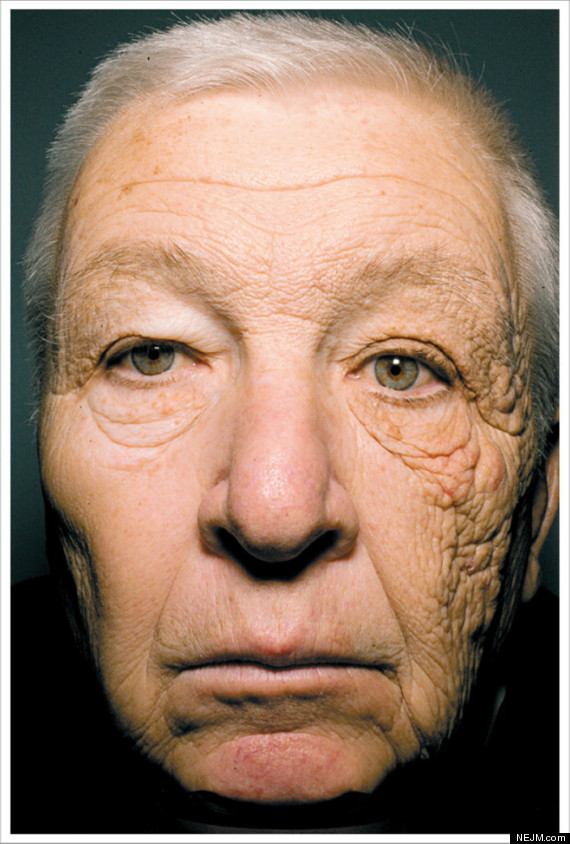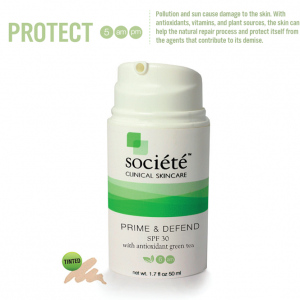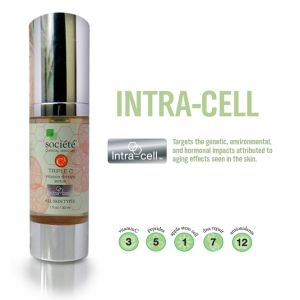Always protect your skin with sunscreen!!! Everyone should be using it regardless of it being summer or winter. The sun can cause fine lines, wrinkles, pigmentation, brown spots, uneven skin tone & texture among many other things. You can use all the firming serums & anti aging products but it won’t be effective if you don’t first protect your skin from sun damage. It’s easy to prevent but harder to reverse the damage.
People of all skin colors and ethnicity get skin cancer. More than 3.5 million skin cancers in more than 2 million people are diagnosed annually. Some of these skin cancers could have been prevented with protection from the sun’s rays by using something so simple by using sunscreen. There are two different types of sunscreen protection. Physical sunscreens protect your skin from the sun by deflecting or blocking the sun’s rays. Chemical sunscreens work by absorbing the sun’s rays. Some chemical filters can scatter sun rays, but still mostly just absorb them. I recommend using a Broad-spectrum sunscreen protection (protects against UVA and UVB rays) with ingredients like titanium dioxide and/or zinc oxide (physical sunscreen) at 10% such as Societe Prime & Defend SPF30. I also recommend using a topical Vitamin C serum with L-ascorbic acid such as Societe Triple C Vitamin Serum. Vitamin C has a naturally SPF (but cannot replace sunscreen) and is a powerful antioxidant that helps to protect against free radical like UV.
“The skin relies on antioxidants for protection against such environmental insults as ultraviolet (UV) rays, cigarette smoke and pollutants that can cause free radicals and photoaging of the skin. Free radicals damage DNA, proteins and lipids, which cause skin cells to die. Since the skin receives the most intense free-radical assault from UV light exposure, replenishing and increasing the antioxidant defense of the skin becomes an attractive strategy for photo protection and photo repair. Studies show that, when applied to the skin, L-ascorbic acid stimulates collagen synthesis, provides sun protection and protects the skin by reducing free radicals that would otherwise destroy skin cells and their components. Topical vitamin C has also been shown to improve skin texture and tone, reduce brown spots, decrease the appearance of fine lines and wrinkles, and help prevent their formation” from skininc.com
Sun protection should be used every day if you will be outside at all. We are constantly exposed to harmful ultraviolet (UV) rays all year round. Even on cloudy days when the suns behind the clouds, up to 80% of the sun’s harmful UV rays can reach and penetrate your skin. We should especially using protection when around the elements like snow, sand, and water. This increases the need for sunscreen because they reflect the sun’s ray. Apply sunscreen to dry skin 15 minutes BEFORE going outside and always re-apply sunscreen approximately every two hours in the prolong sun or after swimming or sweating heavily. Don’t forget skin cancer also can form on the lips so protect your lips by applying a lip balm or lipstick that contains sunscreen with an SPF of 30 or higher.

Truck driver of 28 years with severe sun damage to the left side of his face. Image courtesy Huffington Post
There are many questions about using sunscreen and the decrease your skin’s production of vitamin D. If you are concerned that you are not getting enough vitamin D consult with your doctor about options for getting vitamin D. Many people like myself, try to get the vitamin D from foods and/or vitamin supplements. This can gives you the vitamin D you need without increasing your risk for skin cancer.
When treating a sunburn, it is important to begin treating it as soon as possible and stopping any further UV exposure. Dermatologists recommend treating a sunburn with:
- Cool baths to reduce the heat.
- Moisturizer to help ease the discomfort caused by dryness. As soon as you get out of the bathtub, gently pat yourself dry, but leave a little water on your skin. Then apply a moisturizer to trap the water in your skin.
- Hydrocortisone cream that you can buy without a prescription to help ease discomfort.
- Aspirin or ibuprofen. This can help reduce the swelling, redness, and discomfort.
- Drinking extra water. A sunburn draws fluid to the skin surface and away from the rest of the body. Drinking extra water prevents dehydration.
- Do not treat with “-caine” products (such as benzocaine).
With any sunburn, you should avoid the sun while your skin heals. Be sure to protect your skin by covering the sunburn every time before you head outdoors.



